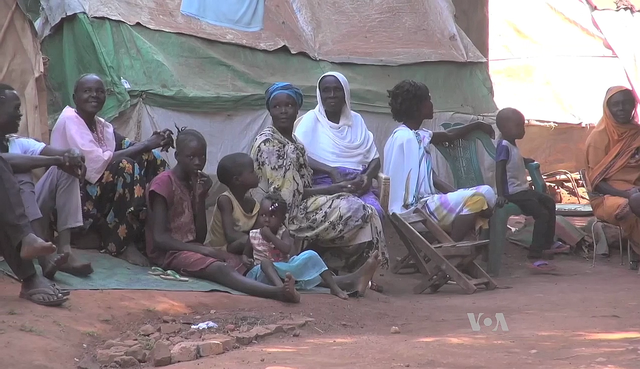While most Americans scroll past more obscure breaking news alerts and tune into political debates or celebrity drama instead, one of the world’s current deadliest conflicts is quietly raging and most people within the U.S. don’t even know it’s happening. The Sudanese civil war, which began in April 2023, has led to one of the worst humanitarian and refugee crises in recent human history, but you wouldn’t know that from looking at mainstream American media.
The Sudanese civil war started as a power struggle between two generals, Abdel Fattah al-Burhan, head of the Sudanese Armed Forces, and Mohamed Hamdan Dagalo, leader of the military rapid support forces. Once allies, the two are now adversaries in a battle, warring for control of the nation they once served. Sudanese civilians are the ones ultimately paying the price, though. According to reports published by the United Nations, over 14,000 people have been killed in the conflict, and just over eight million have been displaced, making it one of the largest displacements in modern history.
Despite this, most people in the U.S. have no idea what the conflict is, and why it is happening, or the detrimental effects it’s having on the people and the region as a whole. This raises the question, why has this large scale conflict been so underrepresented in American media?
There is no one solution to the conflict: it’s a complicated issue of geography and politics. The conflict simply doesn’t fit into the narratives that currently dominate American media. There is no direct involvement from the U.S., there’s no celebrity activism, and there’s no flashy technology. Americans simply, whether intentionally or not, are ignorant towards these more complex, deeply rooted conflicts that include ugly methods of warfare and prevalent civilian casualties.
To counter this, certain media outlets like The Guardian or the BBC have provided strong ongoing coverage and updates on their respective publications. Despite this, these real stories are often buried under more clickable, attractive headlines.
This is deeply troubling, not just because of the suffering and brutality of the conflict, but also it reinforces this dangerous hierarchy the American people have about who’s suffering matters. When a war breaks out in Europe, it’s international news for months, but when it happens in places like Africa, it is almost entirely ignored.
What is more important, however, is that it is not just a regional issue within Africa. This brutal conflict has widespread implications that affect nations across the world. More specifically, refugee camps in places like Chad and South Sudan are overflowing with refugees. This is brewing to become a disaster that will have ripple effects across different continents.
The real tragedy, however, is that this war is almost entirely preventable. Aside from the conflict itself, things like humanitarian aid and diplomatic efforts from the U.S. are vital and necessary in working towards solving the current refugee crisis in the region. Some may argue that the U.S. can’t be expected to involve itself in every international conflict. But if we assume this “World policemen” position that we have held for decades, what right do we have, as a country, to pick and choose which conflicts that we care about? The real question is, would we have sent so much money to support Ukraine if it was an African country being invaded by a foreign enemy? The answer is no. The American mainstream media publicizes certain conflicts, while ignoring others, and these practices are rooted in widespread ignorances toward other people’s differing life experiences.
There is a historical precedent of American journalists only focusing their attention on certain international conflicts and global events like the bias on The War on Terror, or the war in Iraq.
What our country really needs is an equality in our awareness, attention and advocacy. If certain media organizations won’t publicize these conflicts, we should do it ourselves. Inform people in your own life about what is happening in Sudan, and uplift Sudanese voices and news that teach of the brutal civil war, because silence is what allows pains like this to worsen, and that should not be tolerated in our society.














